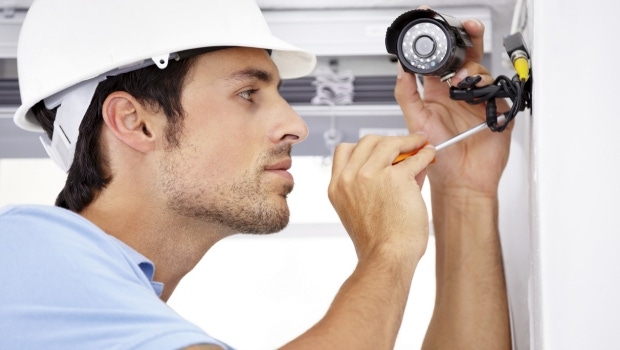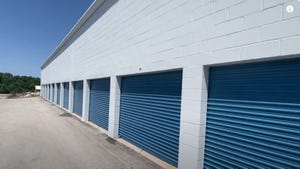Theft, vandalism, arson and other property damage that result from an improperly functioning security system can have a devastating impact on your self-storage business. Take the following steps to keep your hardware and software in tip-top shape.
October 19, 2017

Having a fully functional security system is crucial to any business, and even more so to a self-storage facility. Unlike other commercial ventures, storage operations must consider the liabilities associated with security failure. Theft, vandalism, arson and other property damage that result from an improperly maintained system can have a devastating impact on your business, not to mention disrupting the lives of dozens or even hundreds of customers.
If you have an adequate security system at your facility, that��’s a great first step. The next step is to perform routine maintenance on that equipment. Preserving your hardware and software will help ensure your system works well every day for years—even decades—to come.
Hardware Maintenance
Your security hardware includes keypads, cameras, gate operators and alarms. There are many things you can do on a weekly or monthly basis to ensure it remains in good working order. The following tips don’t require any technical knowledge and can be done by self-storage owners and managers without the help of trained professionals. However, it’s important to comply with the manufacturer guidelines and never do anything that would void your warranty.
Check your housings. One very important thing you can do to maintain your outdoor security equipment is to regularly check your keypad and video-camera housings. Dirt and water can damage your hardware, so it’s important to ensure all enclosures remain sealed and water-proof. The recommended frequency is once per month.
Check for pests. We don’t always think about this one, but spiders and wasps frequently make homes on or around outdoor security equipment. Webs, nests and other infestations can create moisture that can ruin a circuit board in short order. These pests can also obstruct the field of view of your outdoor cameras. During the spring and summer, weekly inspections are ideal.
Clear all debris and trim landscaping. This is especially important if your facility is in a wooded area or you have shrubs, vines or trees. Pine straw and cones, leaves, sticks, tree limbs, and other debris can collect on or around your keypad housing, gate operator and other devices. They can damage your equipment, collect moisture and obstruct the field of view of your security cameras. Trimming your shrubbery and clearing any fallen detritus ensures your equipment always functions properly. Check for waste on a weekly basis, and trim shrubs and vines monthly.
Clean your camera lenses. This sounds simple, but cleaning your equipment goes a long way. Indoor and outdoor cameras can collect dust, but outdoor equipment is much more susceptible to collecting dirt and debris. Wiping your camera lenses weekly helps you capture clear, high-quality video footage. Don’t forget about the pinhole camera lenses in your keypads!
Clean your keypads. Each day, dozens of people touch those keypads, so regularly clean the buttons. Over time, they collect dirt and oil, and the keys can start to stick.
Check your cables. All cables should be properly connected so devices are receiving the correct amount of power. Again, check for signs of pests, and look for damaged wired from wear and tear.
Check your batteries. If you have wireless alarms or other devices that use battery power, check for signs of corrosion. Corroded or drained batteries should be replaced.
Clear ice and snow. If ice and snow builds up on security devices, it increases the chances of moisture damage. Some keypads and gate operators have built-in heaters or are made to accommodate the addition of aftermarket heaters. These are good options in areas that frequently experience freezing temperatures. Any aftermarket devices should be installed by trained and certified professionals.
Software Maintenance
Just like your hardware, your security software requires regular upkeep. Consider the following tips.
Remove outdated access codes. One of the most commonly overlooked maintenance measures is removing access codes for past employees and tenants, and updating codes for vendors and service providers. Removing an employee’s code when he leaves the company is always important; it’s even more critical if he was terminated or disgruntled. When renters move out, make sure their access codes are immediately expired. Finally, you want to regularly update any access codes distributed to landscapers, delivery services, garbage collectors, etc. Employees of these companies may change, and you don’t want past staffers to have access to your site.
Install updates. Updating your security software to the latest version is critical. Typically, updates provide additional features and functionality, which is a great way to enhance your system without a major overhaul. Updating your software and automatically installing updates is a simple yet important way to help maintain your security system.
If repeated regularly, the steps above will help keep your security system running at peak efficiency.
Christine DeBord is head of the marketing and the reseller-channel departments at PTI Security Systems, a provider of access-control and security systems for the self-storage industry. To contact her, call 404.649.5594; e-mail [email protected]; visit www.ptisecurity.com.
About the Author(s)
You May Also Like





